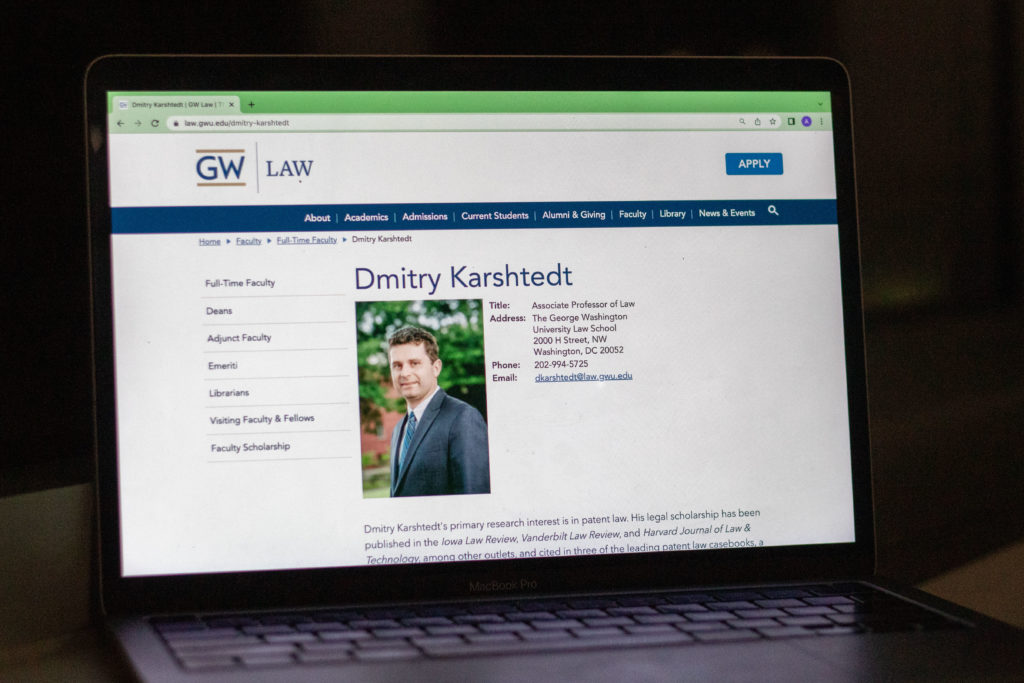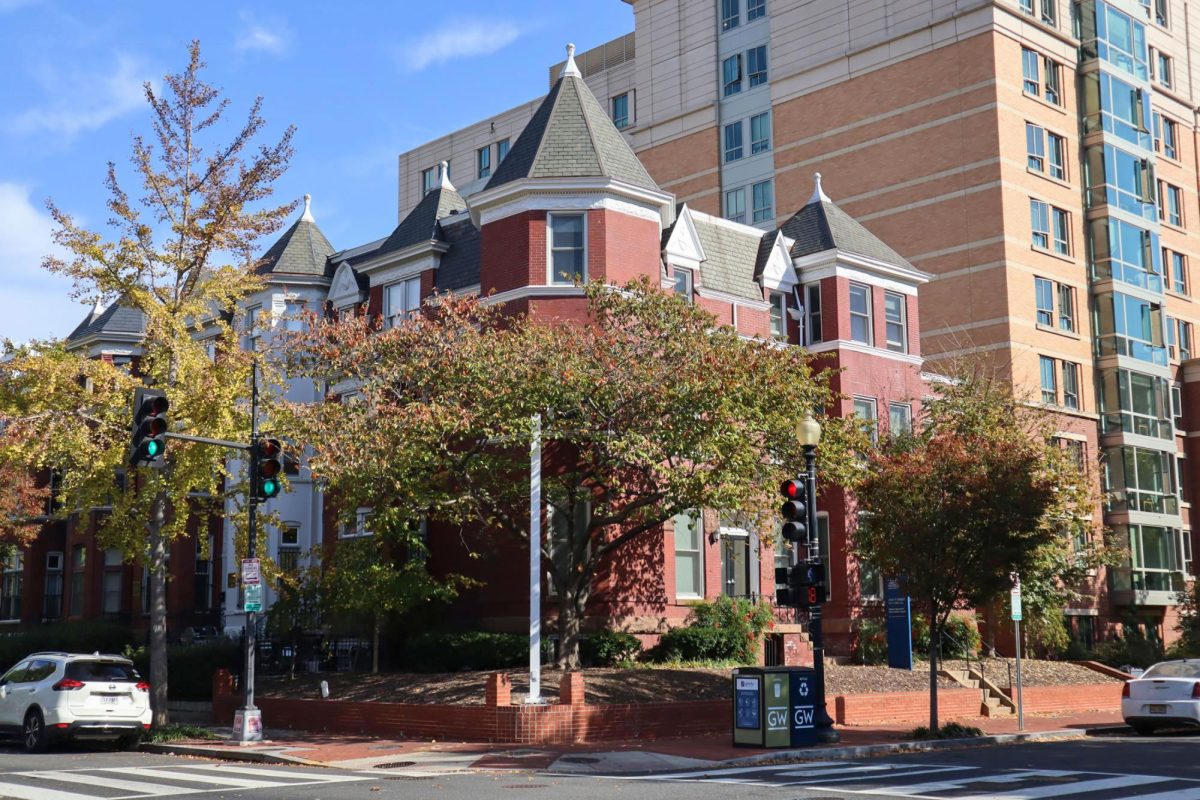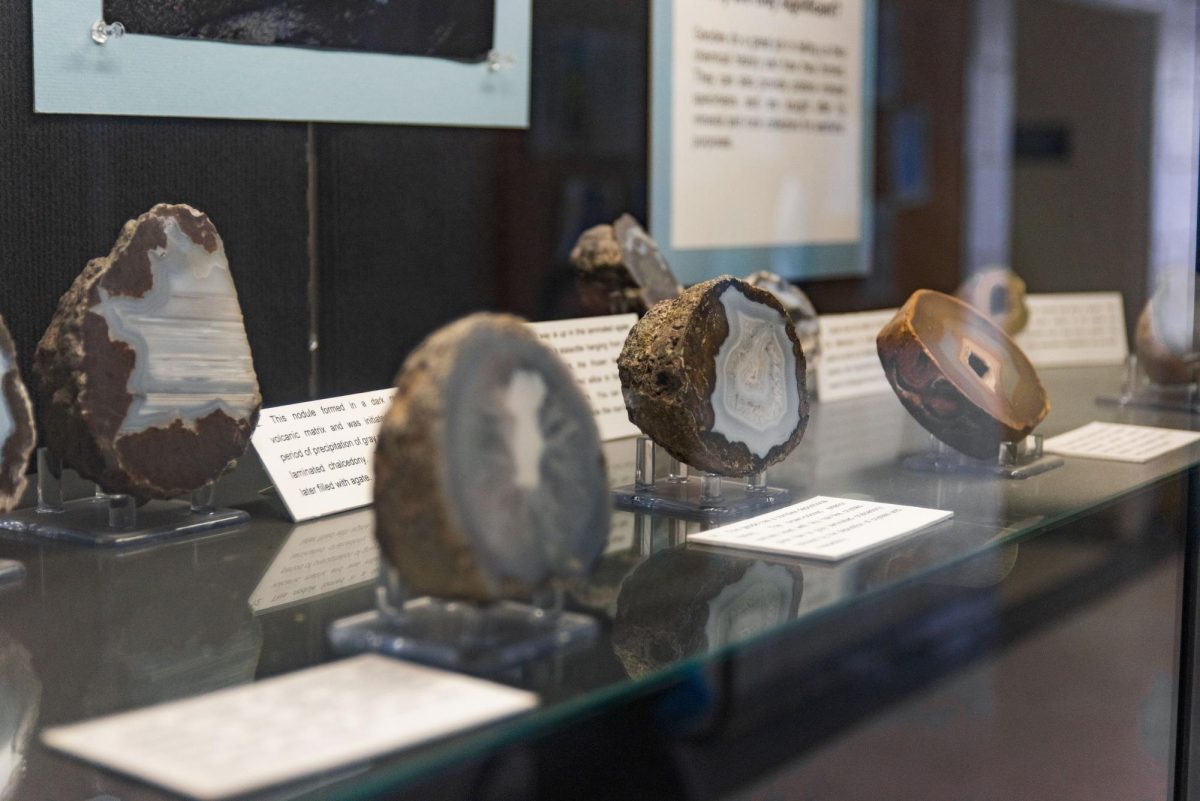Dmitry Karshtedt, a law professor and a celebrated scholar in the intellectual property law community, died late last month. He was 45.
The cause of death is currently unknown, according to the Office of the Chief Medical Examiner.
Karshtedt joined the GW Law faculty in 2015, where he taught courses in intellectual property law, like Patent Law, while his articles were published in legal journals, like Vanderbilt Law Review and Harvard Journal of Law and Technology. His colleagues remember him as an intelligent, funny and kind member of the GW community who went out of his way to support his students and fellow faculty members.
Karshtedt graduated from Stanford Law School in 2011, where he served as the organizer for the Stanford Law Review’s symposium on the future of patent law. After earning his law degree, Karshtedt became an attorney for the Patent Counseling and Innovation Group at the Palo Alto law firm Wilson Sonsini Goodrich and Rosati from 2011 to 2012 and worked as a clerk for Judge Kimberly Moore, the chief judge of the U.S. Court of Appeals for the Federal Circuit from 2012 to 2014.
Prior to becoming a law professor at GW, Karshtedt was also a fellow at Stanford Law School’s Center for Law and the Biosciences from August 2014 to July 2015. He went on to earn awards for his work in intellectual property law, like a fellowship from the Antonin Scalia Law School’s Center for the Protection of Intellectual Property at George Mason University. He also served as a visiting scholar at the University of Copenhagen Faculty of Law’s Centre for Advanced Studies in Biomedical Innovation Law in fall 2021.
Karshtedt received a bachelor’s degree in chemistry and graduated summa cum laude from Harvard College in 1999 before earning a doctorate in chemistry from the University of California, Berkeley in 2005 ahead of his entry into the law field.
He furthered his career in chemistry through his roles as a staff chemist at Kovio, Inc. – a semiconductor materials startup – and a scientific consultant at Siluria, Inc. – a chemical catalysis startup from 2006 to 2008. Karshtedt was the co-inventor of 12 U.S. patents, including a patent for natural gas processing and systems, and the co-author of five scientific journal articles.
After joining GW Law’s faculty in 2015, Karshtedt went on to work on five of the law school’s committees, including the Academic Integrity Committee, and serve as a peer reviewer for The George Washington University Law Review.
Law school faculty said they will remember Karshtedt for his thoughtful approach to his teaching and scholarship and the humor and support he brought to the school’s community.
Robert Brauneis, the co-director of the law school’s Intellectual Property Law program, said Karshtedt will be remembered for his humble and kind nature and his commitment to the program and the law school.
“We have lost a brilliant scholar, a cherished teacher, a devoted colleague and a kindhearted, caring man, not at the end of a long life but in the midst of a successful career with the promise of much more to come, a promise that is now tragically cut short,” he said in an email to intellectual property law professors at GW.
Brauneis said he sat in on Karshtedt’s courses and was “amazed” by how he encouraged student interaction to make his courses engaging. He said Karshtedt co-authored the program’s strategic planning document and often reviewed his colleagues’ article drafts to contribute to the Intellectual Property Law program.
“He was committed to our IP program and to the law school, and he backed up that commitment with time and attention – he leaned in, never away,” he said. “Although John Whealan and I had the responsibility of drafting a strategic planning document for the IP program back in the spring of 2021, Dmitry became an enthusiastic joint author, contributing as much as we did.”
Brauneis said Karshtedt enjoyed academic and social interactions with his colleagues and planned to promote socializing among the law school’s faculty through activities, like Friday afternoon drinks and ping-pong sessions at the law school.
“He felt very warmly welcomed there, and he reveled in the mingling of academic and social interaction,” he said.
Barbara Lauriat, a visiting associate professor of law, said Karshtedt was a “generous and energetic colleague” whose humor, intelligence and sincerity defined his personality. She said Karshtedt often took time out of his schedule to advise other faculty members in the law school on their career and academic pursuits.
“Even with all of his work and travel, he was always thinking of ways to help and support me in my career and scholarship, and I know that it wasn’t just me – he did the same for so many others,” she said in an email. “His death is a tragic loss for his family and his friends, for GW and for the intellectual property law community around the world.”
F. Scott Kieff, the Fred C. Stevenson Research Professor of Law, said Karshtedt was an “absolute treat” to have among the law school’s faculty.
“He was a great scholar, teacher and all around member of our community,” he said in an email. “I hope that his family is comforted to know how many of us there are who learned so much from their son’s work and who so enjoyed their son’s camaraderie.”
Karshtedt is survived by his parents, Tatiana and Ilya Karshtedt. His family and members of the law school community gathered for his memorial service earlier this month at St. Mary’s Orthodox Church in Falls Church, Virginia.
Karshtedt’s family requested that instead of sending flowers, people make donations to his scholarship fund.
Editor’s Note: If any family members, friends or colleagues of Professor Dmitry Karshtedt would like to provide further comment for the story, email The Hatchet at [email protected].








